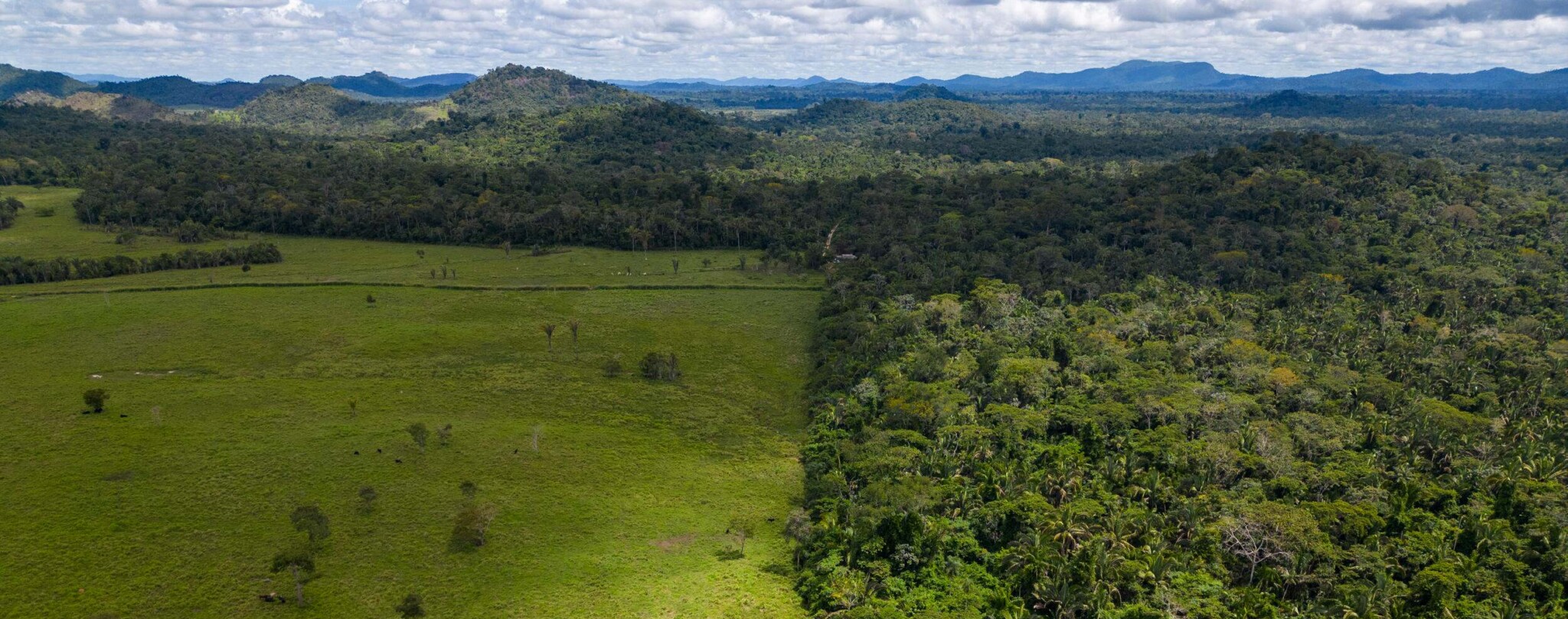
Drone footage shows natural conserved forest areas and flat degraded lands near indigenous territory Katete Xikrim, in Agua Azul, Pará state, Brazil. Photo: Maíra Erlich
By Giulia Carbone, Director, Natural Climate Solutions Alliance, World Business Council for Sustainable Development (WBCSD)
In today’s turbulent world, the greatest danger in climate policy isn’t making a misstep. It’s doing too little, too late. Public budgets are shrinking, geopolitical instability is rising, and interest rates remain high—yet climate change does not pause for fiscal cycles or political shifts. At precisely the moment when governments are stretched thin, we risk sidelining proven tools that can deliver results at scale. That would be reckless. Policymakers must act pragmatically and embrace every viable solution, including high-integrity carbon markets.
Read more
Related articles for further reading
What carbon markets are—and why they matter
Carbon markets allow governments and companies to finance emissions reductions or removals around the world, by purchasing credits that represent verified climate outcomes. Done well, carbon markets channel private capital into protecting forests, decommissioning coal plants, and deploying new technologies—often in places where public funds fall short.
Yet some corners of the climate movement argue against market-based solutions, contending they are a distraction from the harder work of cutting emissions at the source. Their concern—that credits can be misused or lack proper oversight—is valid at times. But dismissing these financing mechanisms entirely ignores both the progress on integrity safeguards and the reality that public finance alone cannot meet the scale of the challenge.
The new geopolitical reality
Across the globe, governments are confronting tighter fiscal conditions while facing simultaneous demands for security, health, and economic stability. In 2024, climate finance reached a record $2 trillion, according to the Climate Policy Initiative. Yet CPI also warns that fragmentation and political headwinds are undermining momentum. The costs of delay are compounding, with climate impacts driving further socioeconomic instability.
The lesson is clear: waiting for perfect solutions is not an option. Pragmatism is essential. Public finance alone cannot carry the burden, and policymakers must lean into every credible mechanism available today.
The scale of the challenge
While governments have made important strides over recent decades, today’s national climate pledges still fall short of what is needed to meet global goals. The UNFCCC’s latest synthesis report shows that existing national commitments will cut emissions just 2.6% below 2019 levels by 2030—essentially flat. Meanwhile, the Independent High-Level Expert Group warns that private climate finance must increase 15–18 times, from about $30 billion today to $450–500 billion annually by 2030.
In other words, the private sector’s role is not optional—it is existential. Without clear systems that can mobilize private capital quickly and efficiently, we will not close the gap.
Deploying the full portfolio
Carbon markets are already proving their value. Compliance instruments raised nearly $100 billion in 2022. Under Article 6 of the Paris Agreement, international carbon markets could grow to more than $100 billion annually by 2030. And the voluntary carbon market, if supported by clear rules and corporate ambition, could reach $50 billion in the same period.
These markets are not silver bullets. But they are proven, scalable, and available now. They mobilize resources—especially in developing countries—where public funds cannot reach. The real question is not whether to use them, but how to strengthen their integrity so they deliver maximum impact.
A call to pragmatic action
Policymakers today face difficult trade-offs. But the guiding principle must be pragmatism, not purity. It’s encouraging to see some governments showing real leadership on this front, including the United Kingdom, Singapore and Kenya, who together have launched a new coalition to scale high-integrity carbon markets and boost finance for ambitious climate action.
While the primary focus should be on internal decarbonization, policy and guidance from governments should enable market-based solutions, and a portfolio approach in particular: start with options that are available now, like nature-based solutions now; invest in durable removals for the mid and long term; and enforce safeguards to ensure integrity. Carbon markets are not a substitute for strong regulation, innovation, or public finance. They are complements—an indispensable part of the broader climate toolkit.
The climate crisis will not wait for perfect solutions. Policymakers must act with urgency, realism, and pragmatism—backing every viable tool to protect our economies and our planet from the far greater risks of delay.